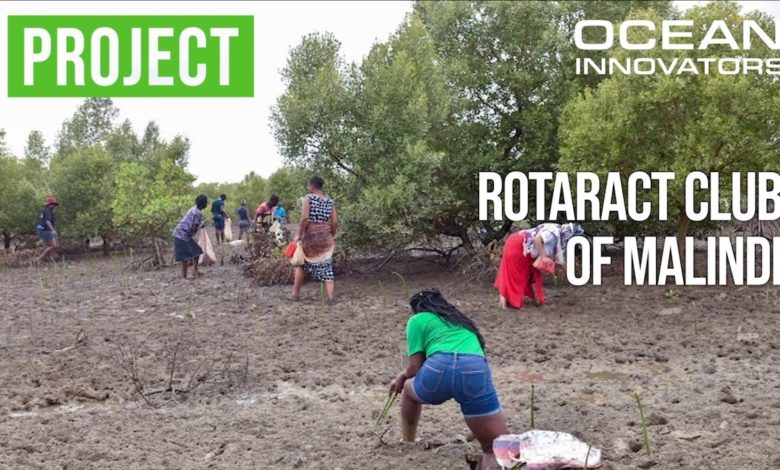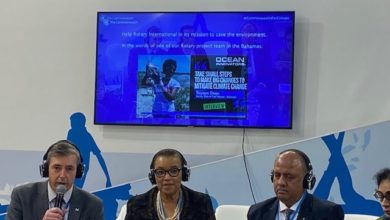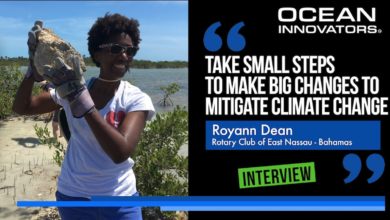
- About Rotaract Malindi
- What is Rotaract Malindi doing to protect mangroves?
- Why is it so important to protect mangroves?
- How to help
According to the Food and Agriculture Organisation (FAO) of the United Nations, mangrove forests are in decline. However, the rate of loss is slowing. Mangroves are tropical species found on sheltered coastlines and estuaries in the tropical and subtropical areas of the world. The plant covers less than 1% of all tropical forests worldwide.
The main threat for mangroves is land conversion for other uses such as agriculture, aquaculture, urban development, and infrastructure. Between 1980 and 2005, the world lost an alarming 20% of mangrove areas. How can we protect remaining mangroves? How do we reverse human-driven loss of mangroves? What are the consequences of mangrove loss?
About Rotaract Malindi
The Rotaract Club of Malindi was chartered back in May 2003. We currently have 20 members actively participating in club activities. Rotary has seven areas of focus. Today we’ll deal mainly with mangrove planting, which is part of the “environment” area of focus. With regards to mangroves, the club’s needs are to get more support in advising people on how to take care of mangroves. They are teaching the community how to sustain and keep mangroves intact because without mangroves. We would lose many species of sea creatures, we would have soil erosion, and we would see the destruction of areas near the ocean.
What is Rotaract Malindi doing to protect mangroves?
When it comes to planting mangroves, there are two approaches. There are propagules and seedlings. Propagules come from the mangrove trees; they fall and once they hit the ground, they start germinating. Seedlings are propagules which are taken to a nursery and grown. Once leaves come out, the team transports the seedlings to the shore and plants them.
The most important aspect of mangrove planting is that you should not plant them too close to the water where they can get washed away during high tides. They should be planted such that water will reach them but not drown them so that they have time to germinate.
Since Erick Weje joined the club in 2017, the club has planted more than 80000 propagules and more than 50000 seedlings. These have been done with the help of the community.
Rotaract Malindi is trying to involve the community because deforestation is a big challenge in Kenya and the fact that they make profits off the mangrove in selling the charcoal is really discouraging. Every time the club goes to plant mangroves in areas with existing mangroves, they find that people are trying to cut down mangroves and deforest them.
“If you work with the community, it is an easy job”. Once the team educates the community and finds people who are interested, the club manages to find up to 400 people helping to plant mangroves.
Why is it so important to protect mangroves?
Generally, mangroves are of benefit because they prevent soil erosion. The second benefit is they help fight against global warming by removing carbon dioxide from the atmosphere and storing it in the plant. Furthermore, most sea creatures depend on mangroves for reproduction. Species like crabs and fishes go near mangroves where they find good sanitation and a good area to breed. The roots of mangroves also help in maintaining the quality of water by trapping sediments and pollutants in the water. Finally, mangroves protect the shores from soil erosion.
How to help
Educating the community towards mangrove planting and mangrove conservation is key so that at least each and every person might know the importance of mangroves. By spreading the word about environmental conservation specifically with regards to mangrove, we can create more awareness around the importance of mangrove rehabilitation. The destruction of mangroves is a destruction to the ecology, it’s a destruction to society. Most people cut mangroves to obtain charcoal and deplete the area in doing so. Hence, the most important step is education on the importance of preserving mangrove forests in these areas.
The take home message from Erick is to take initiative. We need to plant mangroves, and educate the community about the benefits of mangroves to the society and environment. “Taking initiative is what we should see, day in and day out.”
You can learn more about Rotaract Malindi and their efforts in mangrove conservation by visiting their social media platforms on Facebook, Twitter, or Instagram.







